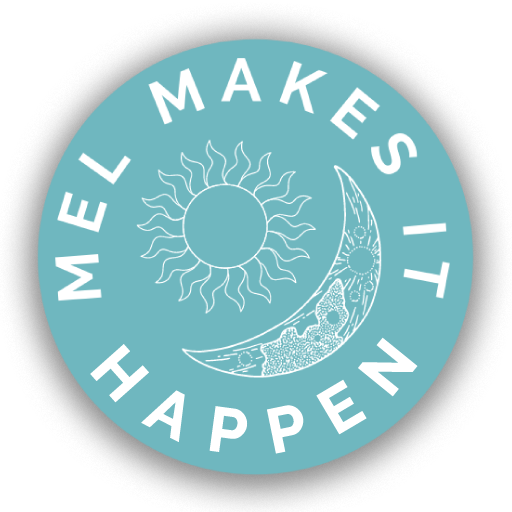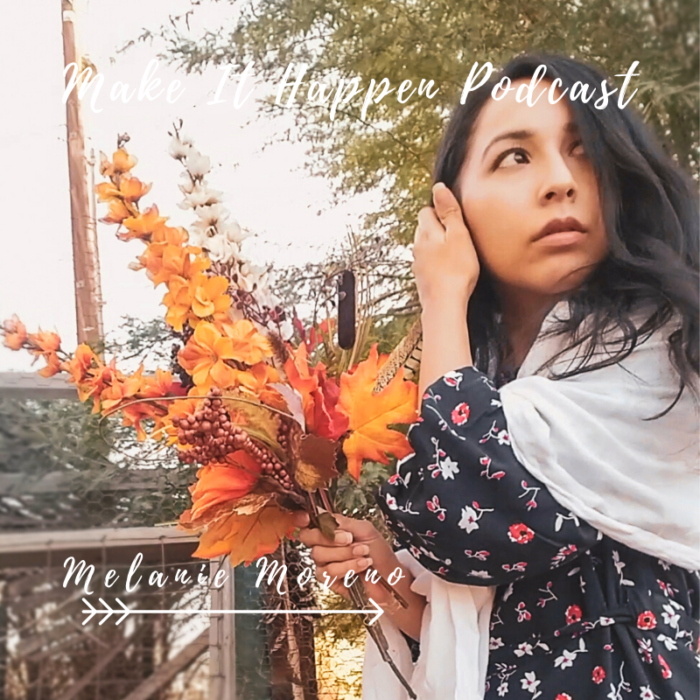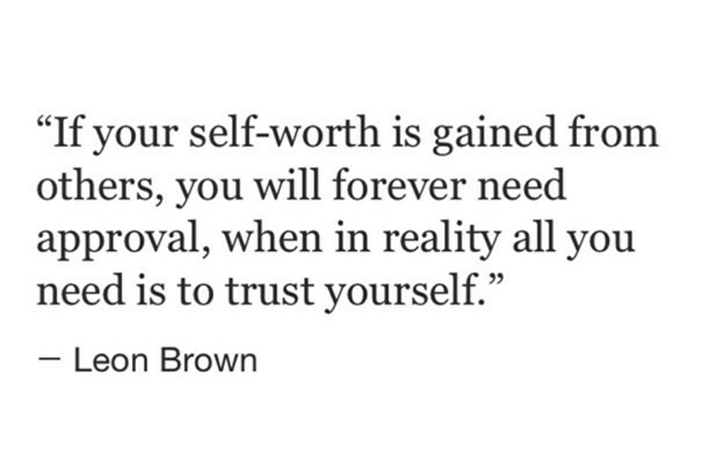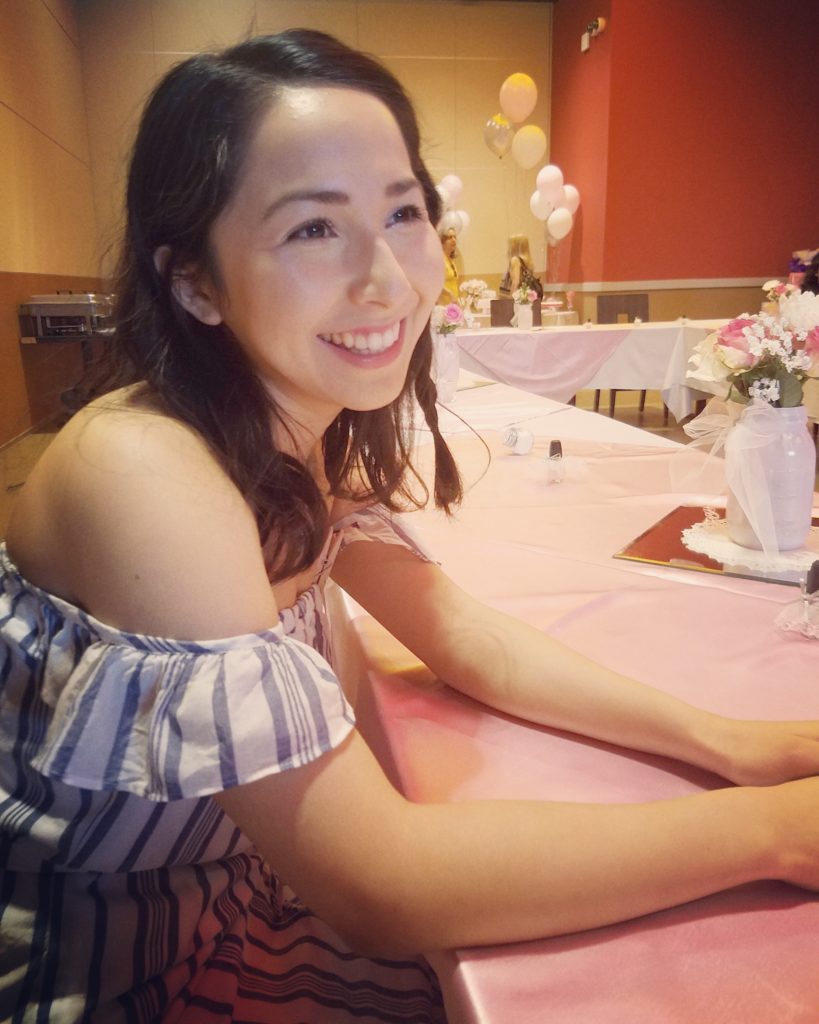![Things No One Told Me About Disordered Eating Recovery [Part II]](https://www.melmakesithappen.com/wp-content/uploads/2020/04/waterrush.jpg)
Things No One Told Me About Disordered Eating Recovery [Part II]
This post is a follow up to my Review of The Balanced Blonde’s Plant-Based Recipe Book & 22 Day Detox.
Each time I feel I’m recovering and I take a step forward, something else causes me to take a step back.
For a long time, the challenge I had to overcome was admitting that my disordered eating habits were real. I was in denial that I had a problem, which only kept me looping in my restrictive eating cycle.
Unfortunately, things weren’t all sunshine and rainbows after I admitted to myself, and my close circle, that my disordered eating behaviors existed either because the bigger challenge seems to reside in all of the moments that followed.
We live in a culture of “dieting” and with that comes a dogma of food rules.
Many of us hold a belief system that perpetuates ideas such as:
Skinny is better than fat
Fat is bad
Eating less is better
Low-carb, low-fat, low-calorie ideal
We should make healthy choices
Healthy = vegetables and fruit
Healthy involves working out (daily)
And so much more…
This is just scratching the surface on some of the major ideas that we get casually thrown every day in language, both intentionally and unintentionally. The latter is really troublesome because that means we aren’t even aware that we hold such deep-seated beliefs.

If it isn’t clear by now: recovering from disordered eating is a roller coaster.
You do the self-work. Sifting through all of the beliefs influencing your disordered eating behaviors. Asking yourself why and parting ways with belief baggage. Even re-framing some thoughts into beliefs that can serve you.
By this point, you have slowly crawled upwards and finally you think you’ve reached a high where you are all recovered (fingers crossed!). You feel good about yourself but then this tempting little nugget comes across your path to test you. Sometimes it might be easy to walk past it but there are times where you want to try it.
So I did.
For me, the tempting little nugget was this blogger’s recipe book which ended up putting me on two weeks of salt-free, oil-free, sugar-free meals. Admittedly, I was eating lots of fruit and vegetables, no refined starches or sugars, all plant-based…so I thought I was doing something healthy for my body.
The recipe book involved a plant-based, SOS-free (salt, oil, and sugar-free), food combining way of eating with an initial 3 week challenge period. I purchased it (and just wrote a review on it here) from someone I respect and admire and thought she had found the way! I know, I know…now I look at this like: what was I thinking?
For a while now, I’ve held the self-improvement mentality. I’m always on the hunt for ways to improve certain aspects of myself. I thought that as long as I wasn’t going into a diet/lifestyle with the intention to change my body or weight, I was good. The justification I had was, “I’m doing this for my health!” (BTW: That’s a really messed up thought in and of itself but we’ll get to that.)
The author of the recipe book I purchased even explains that this way of eating is what helped her get rid of a whole host of symptoms so I wanted to feel as good as she seemed to feel. I don’t think she was being misleading in any way, and probably many others could find use in the recipes but I was looking outside of myself for guidance on what to eat. The realization that something was wrong came when I started having MAJOR salt cravings 13 days into the challenge. Typically, the adjustment period for something new is hardest in the first 3 days. But 13 days in?? That seemed odd to me.
There is a Facebook group where everyone participating could chat and share tips, so I turned there for guidance. After two days of basically feeling dehydrated and dying for some salt, I was ready to crack and get back to some of my old foods! But, before doing that, I checked in with the Facebook group to see what constructive tips anyone might have.
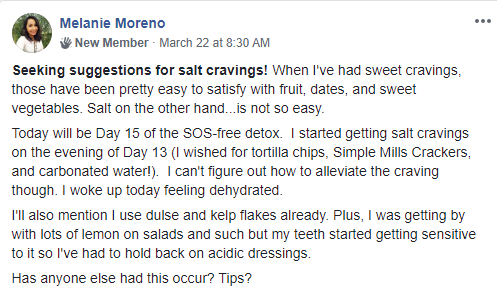
If I saw someone else ask the questions I posted, I would’ve said to them: Yo, listen to your body and just add a little bit of salt to your foods–you’re body is expressing a need, here. Instead, this is what I got:
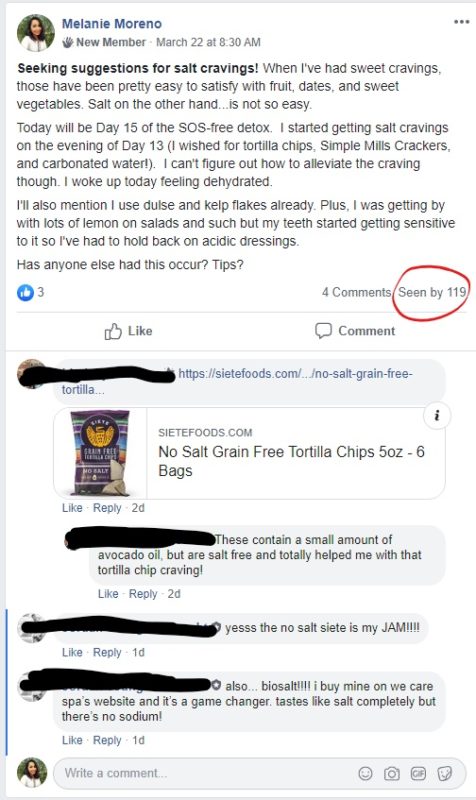
Over 100 views from the group members and all I got was a recommendation for salt-free chips and a salt alternative (BioSalt). Part of me was seeking licensing to stop this nonsense and eat something with salt and not a single person gave that to me.
Trust yourself.
That’s all I wanted to hear.
Who was going to tell me this? If I was waiting for that, who knows where I’d be right now. Thank God I am really in tune with my body and was able to give myself the licensing because I didn’t feel right. I can gauge when something I eat feels good inside of me or not. I can tell when my body craves movement or stillness, and when I just need to drink some water.
I keep thinking I need more information and get tempted by someone else who seems to have discovered the secret to ultimate health.
“Health” is a word I used to use in every other sentence that came out of my mouth. Now, I realize everyone has a different idea of health and every dietary theory that is promoted comes from the intention of increasing health in some way. Yet, what someone in recovery needs (and everyone, in my opinion) is to listen to their own body.
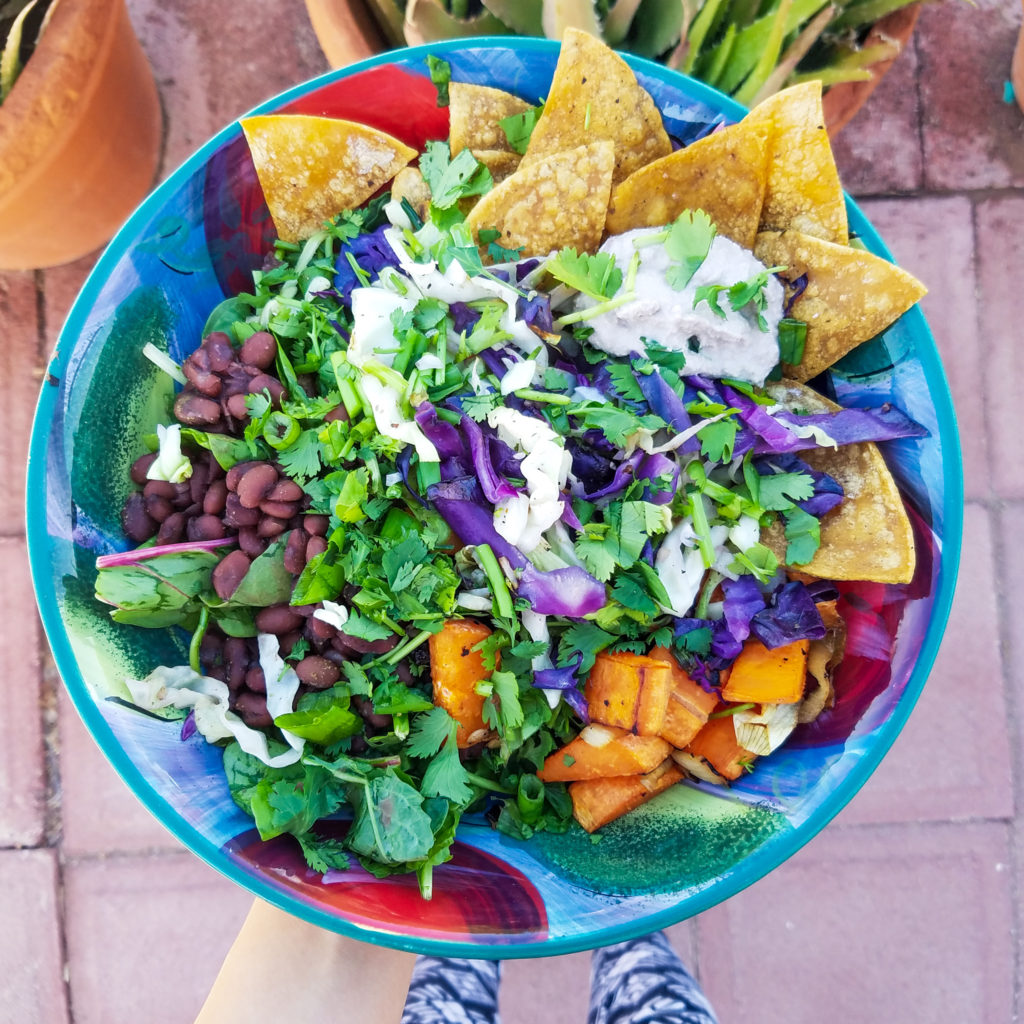
Over the years, I have obsessed over every little thing that goes into my mouth. I’ve placed so much value on my health but now that is what makes it troubling for me to discern whether I’m having true healing moments or still actively perpetuating diet culture. This reality has slapped me in the face over and over again in the past months but most recently after trying the plant-based detox, which for me was a restrictive diet. It was a reminder that I’ve made many strides but temptations to go back to my old disordered ways are all around me.
If freedom is what I want, then following a restrictive meal plan wasn’t what I needed or need. I can’t keep looking at the same troubled places for answers. This takes re-framing my methods and not obsessively trying to live based on someone else’s rulebook. I have to stop looking outside of myself for solutions and remind and trust myself that I already have them.
